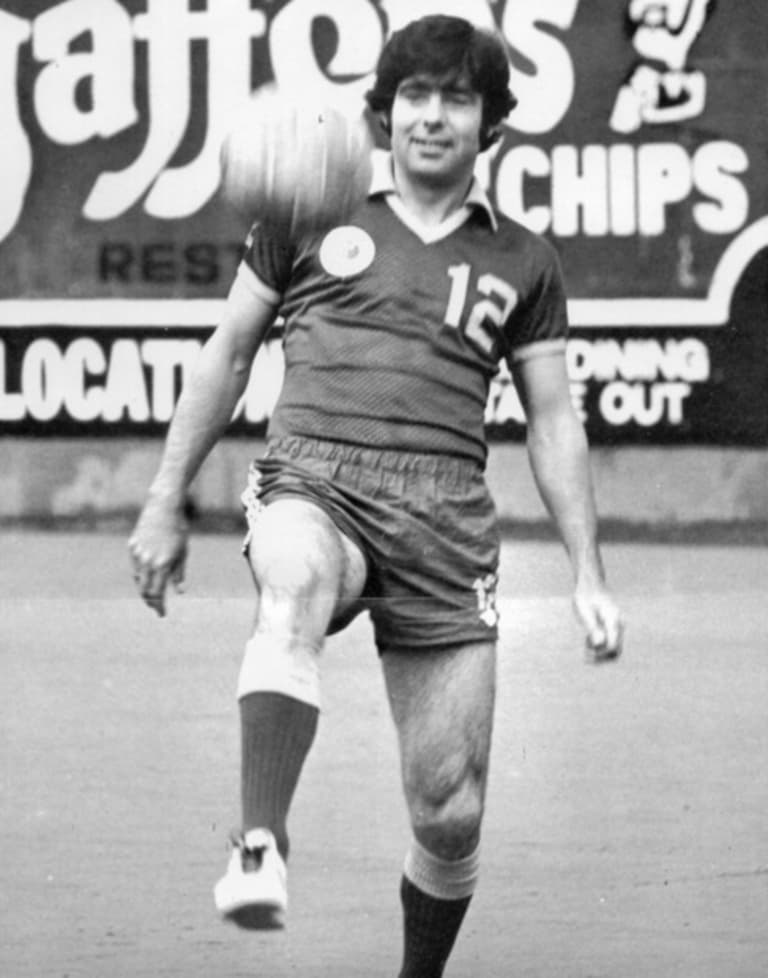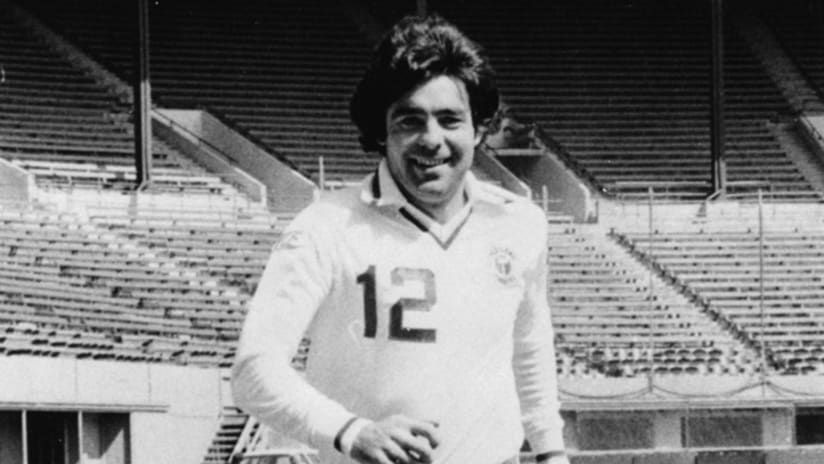The Portland Timbers next round opponent in the U.S. Open Cup on Wednesday night at JELD-WEN Field (7:30pm PT; Tickets, webstream, 750 AM The Game / La Pantera 940), the Tampa Bay Rowdies, is not exactly a new opponent for the Timbers.
Longtime fans of the North American Soccer League (NASL) will remember that the two teams’ respective histories go all the way back to their shared inaugural season in 1975.
For the North American Soccer League (NASL), 1975 was a year of many firsts. Five new teams were added to the league, including the Timbers and Bay Rowdies. Ties were removed from competition and wouldn’t be seen in top-tier American soccer until 2000. Pele joined the Cosmos, and it was the first season the championship game was called the Soccer Bowl.
It was also the first season in the U.S. for a young British winger named Willie Anderson. Anderson came to the Portland Timbers in 1975 on loan from Cardiff City. He began his youth career with the Manchester United development program, eventually making just a handful of appearances for the senior team. He then went on to make 231 appearances for Aston Villa, netting 36 goals.
When he arrived in Portland in 1975, Anderson would join a contingent of British players that would lead the team all the way to the Soccer Bowl in San Jose, eventually losing to, yes, the Tampa Bay Rowdies 2-0.
As the current MLS Timbers and still NASL Rowdies prepare to renew an old battle on Wednesday, Anderson took time to look back on the Soccer Bowl and the 1975 NASL season.
What do you remember about playing against Tampa in Soccer Bowl ‘75?
WA: You know, the game was—it wasn’t the best field for us because it was a narrow field, more like a football field. We played with two wide men, two wingers, Jimmy Kelly and myself. Our game needed width and there wasn’t a lot of it there so I think it suited them better than it suited us. It was a really tight game. They had chances to go up in the first half. I know I got tripped up in the penalty area for a penalty and they didn’t [call it] and that was the first half. They scored a wonder goal in the second half. They brought some defender on to mark me and I think his first touch he just kind of half-volleyed a shot from 30-35 years that just flew in. Then Clyde Best [who later joined the Timbers] scored the second goal right at the end of the game when we were trying to get a goal on. But it was anybody’s game until that big strike from—I can’t even remember who it was. [Ed. Note: Arsène Auguste scored the first goal in the 66th minute.]
I remember we played them, I think it was a Saturday, and we flew back right after the game, had a reception in Portland, and then we all flew out the next day back home. We got to the Soccer Bowl and we were all late getting back to our respective teams.
It sounded like it was quite physical, is that something you remember?
WA: Yeah, you know, with it being such a small field, I mean, you couldn’t get out of the way of people. We were a pretty good attacking team with Kelly and I on the wings and Peter Withe up front. They kind of figured you can’t run without your legs, so if you ain’t standing up, you ain’t running past them. It was pretty physical. It was always physical going to San Jose, even when we played San Jose, because of that small field. It just made it a lot easier to go around kicking people because you could catch them.

Willie Anderson in the NASL Timbers days
What was your first season in the NASL like?
WA: I remember signing for [head coach] Vic Crowe and I had no clue where I was coming. I’d never heard of Portland, hadn’t even really heard of Oregon. I remember Vic Crowe saying ‘It’s the next state to California.’ And I just look at him and say “Oh, the weather must be great.” And he said “Yeah, it’s great.” (Laughs.) First two weeks I was in Portland it rained. But it was great. We just had a good group of guys, mostly British kids. We all lived in the same apartment complex, and we just hit it off. We just all kind of come together and Vic was a really demanding coach in a good way, I thought. He got us super fit and super competitive and all the pieces just came together for us, me and Jimmy playing and having such a great striker in Peter Withe to knock them in, too. We had some good young kids in midfield and we had a lot of old hands in Ray Martin and Brian Godfrey. You know, we just all came together for that summer. I don’t know whether you could ever do that again, it was just a one-off, I think.
Do you have a special memory from that season?
WA: Beating the Seattle Sounders in the playoffs was immense. I think the biggest memory I have of that was we were practicing the morning of that game, or the day before the game, and Vic Crowe—very smart—knew there was a big crowd that were waiting for tickets that was wrapped around the whole stadium, it was amazing, waiting for tickets. We ran out [onto the field] for practice and clapped [at the fans] as we ran around the stadium, and they just went nuts. It was great for us, though, just the fan base. It’s like the Timbers Army now.
Being a player, I mean, that’s what you live and die for. They could give you all the money in the world, but if the fans hate you, you’re not going to feel good about it. But when there are supporters as there are in Portland, you can’t help but want to play and feel good about it.
What do you think about the growth of soccer in the United States, and Portland specifically, since then?
WA: When we got here, you couldn’t find a field to do a clinic on. I mean, a soccer field, there was none anywhere. That was kind of strange, coming from Europe, where there’s a soccer field on every corner. Today, you can’t get enough soccer fields. There aren’t enough.
I think in Portland the Timbers really started the ball rolling, getting people an idea of what it was. That ’75 year was just so exciting and we were so successful. And when these little guys in shorts could go out and people could meet you and you were just regular guys. I think that just gave the community a bit of a feel for who we were, and what we were, and what we were trying to do.
Do you still attend Timbers games?
WA: The first season I bought season tickets for MLS, because I just knew it was going to be a memorable season. The players today that play for the Timbers—I hope they know how lucky they are because, you know, to run out on to that great stadium, and have all of them fans going nuts, I mean, it’s what every player dreams of. They get it every week.













